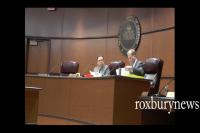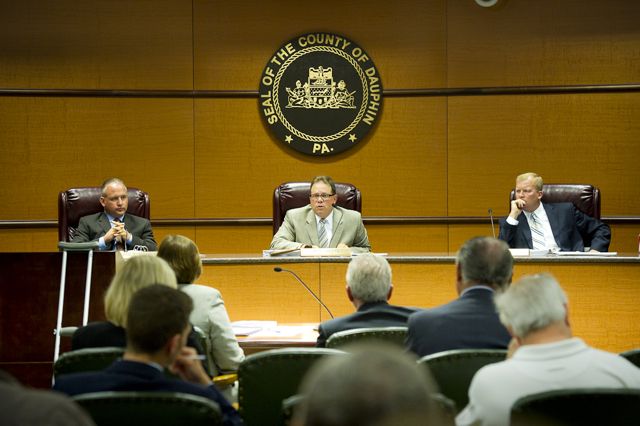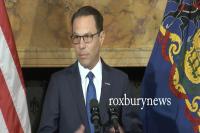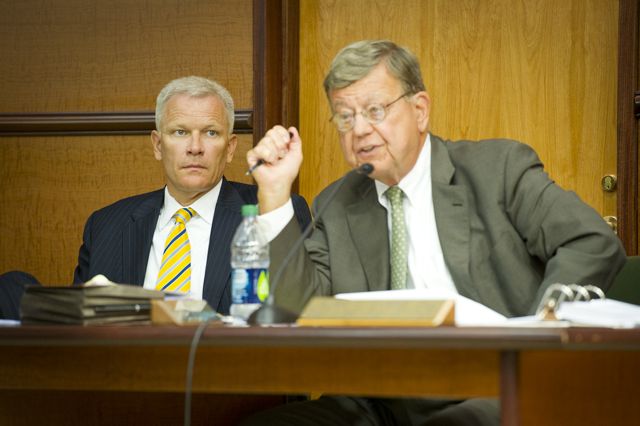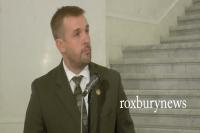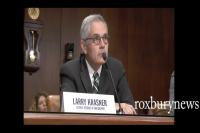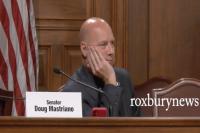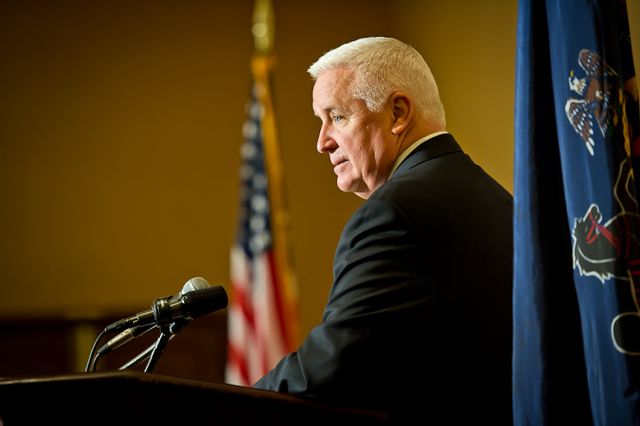As released by the Office of the Governor.
Harrisburg – Today, Moody's Investors Service cited the commonwealth’s current pension crisis as a key reason for downgrading Pennsylvania’s general obligation rating to Aa3 from Aa2. While the commonwealth benefits from a strong economy and low unemployment, Moody’s stated that unfunded pension liabilities, projected to grow to $65 billion from the current $41 billion, will continue to be a major cost driver on the commonwealth.
“It’s clear that this pension crisis has put severe strain on Pennsylvania’s finances,” said Governor Tom Corbett. “As families struggle with skyrocketing property taxes, pension costs are consuming more than 60 cents of every new dollar of state general fund revenues. Doing nothing is not an option and doing nothing fails our families.”
In the rating, Moody’s noted that the state’s pension obligations present a key challenge, stating that “high combined debt position driven by moderate bonded debt levels but growing unfunded pension liabilities as Pennsylvania continues to underfund pension contributions.”
Positive indicators for the commonwealth include having a “diverse, broad, and relatively stable economy, with wealth levels slightly above the national average, buttressed by [a] large health and higher education sectors; recent improvements in governance, resulting in consecutive timely budgets; and strong executive authority to cut or freeze appropriations mid-year.”
“In signing four balanced budgets, the governor has closed a $4 billion budget deficit while refusing to raise taxes on Pennsylvania families,” Secretary of the Budget Charles B. Zogby said. “The bottom line is that structural deficiencies threaten the long-term stability and sustainability of our public pension systems, putting Pennsylvania taxpayers and the public school employees’ futures at risk. The time for pension reform is now.”
In 2013, Secretary Zogby testified before the House State Government Committee and discussed the negative impact Pennsylvania’s pension crisis could have on the commonwealth’s credit rating. Zogby said that “major credit rating agencies - Fitch, Moody's and S&P - point to increased pension contributions and the growing unfunded liability in the public pension systems as major threats to Pennsylvania's economic recovery and future, and have signaled that the failure to address pension reform will result in a downgrade of the commonwealth's credit rating, costing taxpayers even more.”
Without pension reform, the governor shared the following facts: · Property taxes are rising: One hundred sixty-three school districts requested exemptions to increase property taxes above the index, 99.4 percent of which cited pension costs as the reason for the exemption.
· Pension costs mean less money for important programs and services: Pension costs are consuming more than 60 cents of every new dollar of state general fund revenues.
· Our pension debt is growing quickly: Pennsylvania’s pension costs are approximately $50 billion, and in just three years, those costs will rise to $65 billion. Each Pennsylvania family would need to contribute approximately $13,000 to eliminate our debt today.
“I urge the citizens of Pennsylvania to join in this fight and demand that the legislature address the most important fiscal challenge facing the commonwealth: pension reform,” Corbett concluded. “Pennsylvania families and taxpayers deserve nothing less.”
Photo/Natalie Cake


